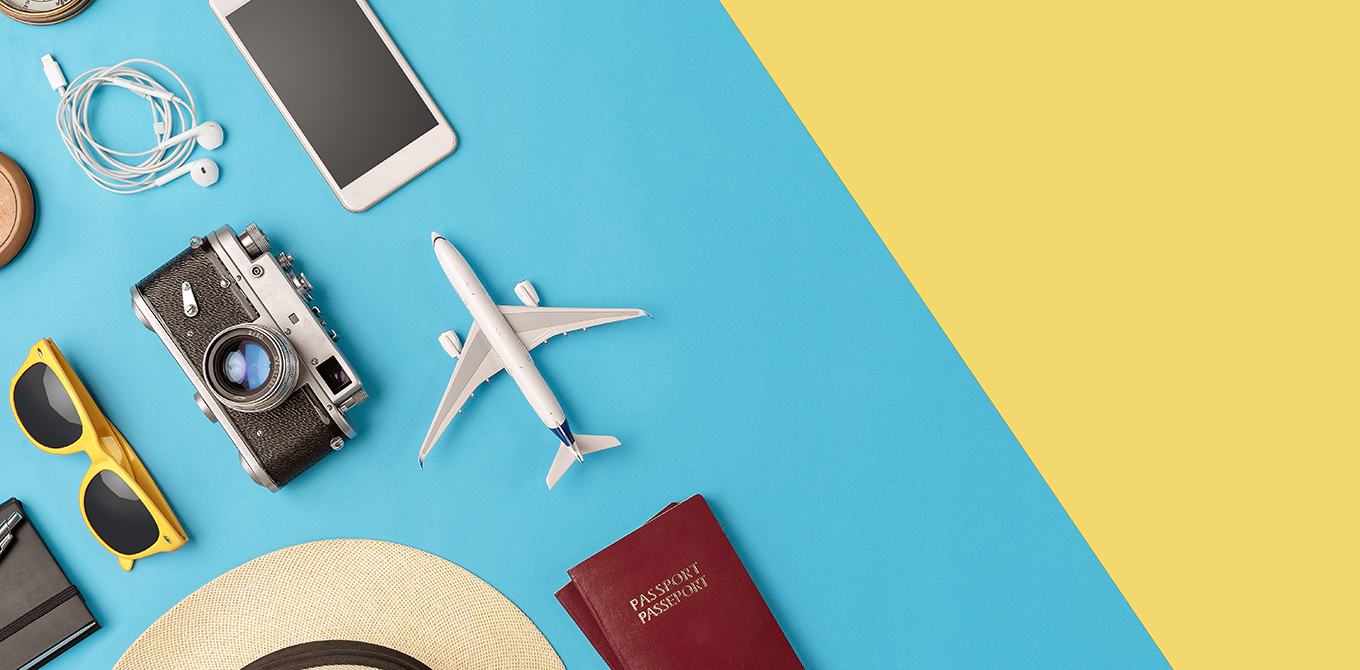Avoid scams and fraud while traveling
You’re finally taking that well deserved vacation. Unfortunately, fraudsters don't take time off, so whether your destination is relatively close to home or half a world away, take these steps to safeguard your financial security while you're away.
Dos and Don’ts to protect yourself from fraud
Do: Set up alerts on your mobile banking apps.
Most banking and credit card apps allow you to set up email or text message alerts that will notify you of activity on your accounts. Notifications can be set for purchases for more than a specified dollar amount, cash withdrawals at ATMs, purchases made outside the United States and more.
Do: Notify your credit card issuers that you'll be traveling.
If you'll be vacationing at a nearby locale, you probably won't need to notify your card issuers, but if you're planning an extended trip abroad or even cross country, a couple of phone calls should prevent fraud alerts from being triggered for your authorized transactions.
Do: Place a hold on your U.S. Mail.
An overfull U.S. mailbox in front of your home can create an opportunity for scammers to steal your personal financial information. To reduce the risk, request a vacation hold from the U.S. Postal Service online at USPS.gov. Another option: arrange to have your mail picked up or forwarded temporarily to a friend or family member.
Do: Secure your mobile devices.
Your mobile devices are prime targets for fraudsters who want to obtain your personal financial information. Setting up basic security measures like strong passwords and find-my-phone services can help to protect you from financial fraud.
Do: Monitor your accounts for suspicious activity.
Online and mobile banking apps allow you to access your accounts whether you're at home or on the go. Checking all your accounts every day when you're on vacation probably isn't necessary, but you should make a habit of reviewing all of your accounts regularly, even when you're on vacation.
Do: Act fast if you suspect fraud on your account.
If you notice suspicious activity on any of your banking or credit card accounts, you should notify your bank or card company as soon as possible, even if you're on vacation or you're not sure the activity is fraudulent. The sooner you report the problem, the sooner your bank or card company can investigate and, if necessary, protect your account. If you report suspicious activity while you're traveling, follow up as soon as you return home.
Don't: Include your card numbers or banking info in emails or text messages.
People use email so often that it's easy to forget it may not be secure. If you send an email to reserve a hotel room, make a restaurant reservation or access other travel services, don't include your credit card number, card security code, online password or other sensitive information in your message. If somehow your personal information is compromised – take action immediately by changing passwords and considering a credit freeze.
Don't: Leave your credit or debit cards or banking info where anyone can see it.
Take care not to leave your mobile phone, driver's license, U.S. passport, or credit or debit cards where they may be stolen or even seen by strangers. Airplanes, trains, buses, rental cars, taxis, ride-share vehicles, and hotel rooms and recreational areas are just a few of the many places to exercise caution while you're on vacation.
Don't: Buy tickets to popular venues, attractions and events from third-party operators.
Popular venues, attractions and events can create opportunities for disreputable resellers to promote overpriced tickets or special "skip the line" tours to unwary visitors. Research your destinations before you go and make notes on where to buy tickets directly so you can avoid being cheated.
Don't: Use unsecured Wi-Fi networks.
Sophisticated encryption techniques have made public Wi-Fi networks safer than they once were, but many are still vulnerable to hackers. If you're not sure a network is secure, it's best to avoid using it so your personal information won't be vulnerable to theft.
Don't: Pack documents, devices or cards you won't need.
The more documents, devices and cards you bring with you when you travel, the more documents, devices and cards you'll have to secure while you're away. Leave your Social Security card, birth certificate, retail store cards, extra electronic devices, and even your library card at home unless you have a specific reason to bring them with you.
Don’t: Post private information or your travel itinerary on social media.
You want to share your vacation photos to your family and friends but be mindful that anything you share online can be seen by fraudsters. So, be selective about what you share online and avoid any private information that can be compromised.




